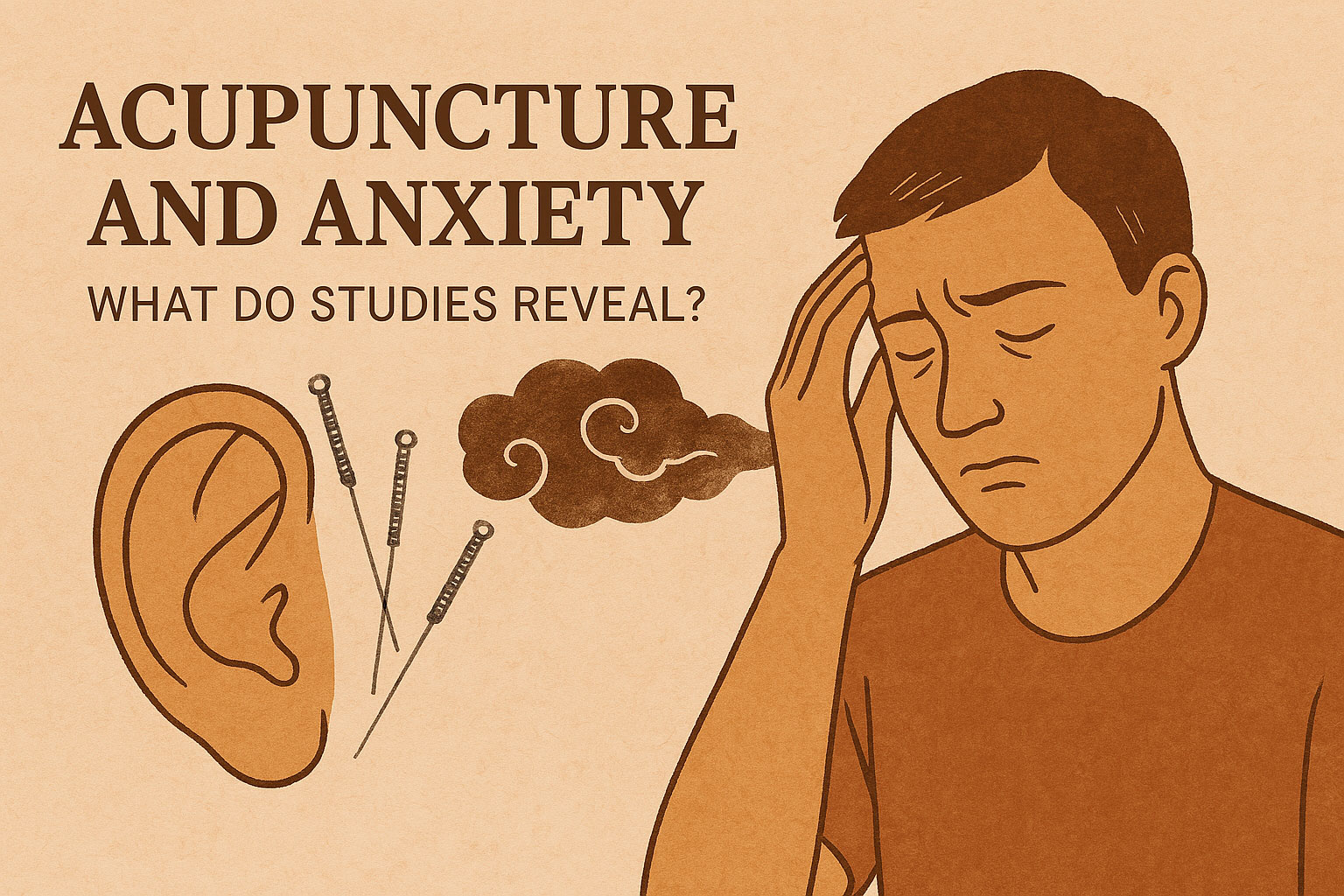Anxiety disorders affect millions worldwide, with symptoms ranging from restlessness and tension to insomnia and panic. While medications like SSRIs and benzodiazepines remain standard treatments, many patients seek non-pharmaceutical approaches — and acupuncture has emerged as a popular option.
Rooted in Traditional Chinese Medicine (TCM), acupuncture is known for restoring balance and regulating Qi. But what does modern research say about its effectiveness for anxiety?
🔶 The TCM Perspective: Treating the Root and Branch
In TCM, anxiety is often seen as a result of:
- Heart and Kidney disharmony
- Liver Qi stagnation transforming into Heat
- Phlegm misting the mind
- Blood and Yin deficiency failing to anchor the Shen (Spirit)
Acupuncture aims to:
- Calm the Shen (神)
- Regulate Qi and Blood
- Clear Heat or transform Phlegm
- Tonify deficiencies
Common acupuncture points for anxiety include:
- Yintang – Calms the mind
- HT7 (Shenmen) – Nourishes the Heart, anchors the Shen
- PC6 (Neiguan) – Regulates emotions and chest Qi
- LV3 (Taichong) – Moves Liver Qi, relieves tension
- KD3 (Taixi) – Supports Kidney-Yin to calm anxiety
🔶 Clinical Research: What Studies Show
Over the last two decades, hundreds of studies have examined acupuncture’s impact on anxiety. Here’s what the evidence suggests:
✅ Reduction in Anxiety Scores
- A 2017 meta-analysis published in Complementary Therapies in Clinical Practice found that acupuncture significantly reduced State-Trait Anxiety Inventory (STAI) scores in patients with generalized anxiety disorder (GAD).
✅ Comparable to Medication
- A 2021 study in Journal of Psychiatric Research compared acupuncture to SSRIs and found similar improvements in anxiety symptoms after 8 weeks, with fewer side effects.
✅ Effects on Brain Chemistry
- fMRI studies show acupuncture can regulate the amygdala and prefrontal cortex, key regions in emotional processing.
- Acupuncture appears to modulate neurotransmitters such as serotonin, dopamine, and GABA.
✅ Support for Specific Conditions
- Proven effective in:
- Preoperative anxiety
- Panic attacks
- Menopausal anxiety
- Anxiety comorbid with insomnia or depression
🔶 Why It Works: Mechanisms of Action
| Mechanism | Description |
|---|---|
| Neuroendocrine regulation | Balances hypothalamic-pituitary-adrenal (HPA) axis, reducing cortisol |
| Autonomic balance | Shifts nervous system toward parasympathetic (rest-and-digest) dominance |
| Inflammation control | Reduces markers like IL-6 and TNF-α |
| Improved sleep | Treats anxiety by breaking the cycle of sleep disruption |
🔶 Safety and Practical Considerations
- Acupuncture is safe when administered by trained professionals
- Minimal side effects (mild bruising, soreness, fatigue)
- May be combined with psychotherapy or medication as an adjunct
- Often noticeable improvements in 3–6 sessions, though full course may take 10–12 treatments
🔶 Conclusion
Acupuncture offers a well-tolerated, evidence-supported option for managing anxiety. Its strengths lie in addressing root imbalances, regulating the nervous system, and offering personalized, whole-body care. As the modern world continues to face rising mental health challenges, this ancient therapy may offer a path toward deeper calm and resilience — one point at a time.


发表回复